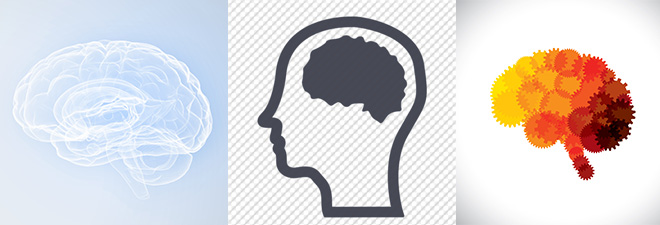
Sleep apnea is hurting your brain – there are no ifs, ands or buts about it. One of the major signs, or symptoms, of sleep apnea is cognitive impairment. Are your keys winding up in the fridge more often? – It may be sleep apnea. Studies have shown that sleep apnea can cause plundering damage to both your white matter and grey matter – areas of your brain that are responsible for everything from physical movement to basic emotions. Now a new study shows why the sleep disorder may be so damaging to the brain: weaker brain blood flow.
In past studies, there were merely assumptions as to why sleep apnea caused so much damage in the brain. Researchers believed that it most likely had something to do with lack of oxygen to the brain, which is a result of having multiple fits of breathlessness, or apneas, throughout the night. In those studies, the goal was to measure the restorative powers of CPAP. Scientists first established that sleep apnea had, indeed, caused damage to the brain. Researchers then established that CPAP could completely restore the damage incurred – both to white matter and brain tissue.
In this new analysis, conducted at the UCLA School of Nursing, researchers used methods rarely employed in sleep apnea studies: they measured blood flow in the brain. The method: a non-invasive MRI, or magnetic resonance imaging, procedure called the BOLD (Blood Oxygenation Level Dependent) signal, which gives doctors a very illustrated view of brain activity. Not only that, but they used a full or whole-brain BOLD signal, which gives researchers a three dimensional view of the entire brain. Scientists wanted to get a fuller picture to know exactly what was going on in the brain – the whole brain.
In the study, test patients – both male and female – had a BOLD signal reading while doing a series of physical tasks in a waking state. One was the The Valsalva maneuver (which is not a salsa dance move, contrary to popular belief) – patients were asked to breathe forcefully in and out of a small tube to raise pressure in their chest. Researchers also tested their hand-grip and they were asked to dip their foot in cold water. All of these tasks were intended to light up different parts of the brain – to test the imaging differences between patients with sleep apnea and patients without the disorder.
Could sleep apnea be that damaging to the brain? Could weaker blood flow be the cause of brain damage in people with sleep apnea? According to the results, there wasn’t much difference between the scans after the The Valsalva maneuver. However, after the hand–grip and foot-in-cold-water challenge, the changes were much greater. The scans among the patients in the control group – or the group without sleep apnea – lit up like a neon sign at a late-night liquor store. The scans of the treatment group – or the group with sleep apnea – stayed relatively dim in comparison, which signifies much weaker blood flow response.
Why did the scans show major differences in blood flow after the hand-grip and foot-in-cold-water challenge, but not after the Valsalva maneuver? Researchers surmise that the former two exercises require nerve signaling from more higher functioning parts of the brain – namely the areas that control sensation and movement. The latter exercise – breathing into a tube – doesn’t require that much effort by the brain. In essence, sleep apnea is limiting your brain’s ability to process major sensory and musculature signals due to decreased blood flow.
The study also had a more sobering outcome for women: weaker brain blood flow was greater in the female cohort than in the male cohort. In a previous study published by the UCLA School of Nursing, researchers deduced that sleep apnea may be much more dangerous in women – and possibly deadlier. It was long believed that women didn’t suffer from sleep apnea, but over the last twenty years it is becoming more and more clear that women do suffer from the sleep disorder – just in a different way than men. In the end, researchers are currently testing the affects of CPAP on brain blood flow, but if previous tests are a good indicator, there is a high probability that the results will be promising – for both sexes.
Source: “Study provides more evidence that sleep apnea is hurting your brain.” UCLA Health. September 10, 2014.










